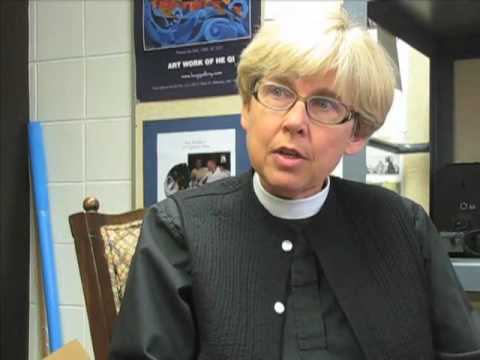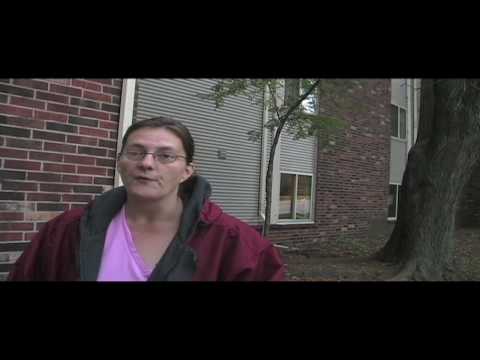eBlack Champaign-Urbana event talks jobs, technology
With the current slow economic recovery and lingering unemployment, jobs are a major topic of concern across the country.
The eBlack Champaign-Urbana project held an event Saturday at the Champaign Public Library to discuss how the Urbana-Champaign Big Broadband initiative will affect the local job market and what job-seekers can do to be prepared.
The morning began with a panel discussion featuring Craig Rost, Champaign’s deputy city manager for economic development; Tom Carrino, Urbana’s economic development manager; Minor Jackson, executive director of workforce development at Parkland College; and Otis Noble of the University of Illinois Office of Equal Opportunity and Access.
Among the panelist, the general consensus was that employers of all kinds will need employees who are prepared for the technological demands of the current job market.
As an example, Carrino cited an Urbana food distribution company. Not only does that company need workers to stock shelves and drive forklifts, but also to use the technology needed to track inventory and shipments.
Another interesting point of discussion was a green-jobs training program at Parkland College, which you can read more about here.
After about an hour of discussion, the group broke out into three smaller sessions. One discussion focused on youth and technology and another continued the discussion on jobs.
I sat in on a discussion about religious institutions and technology. This groups had a lively discussion about the role of churches in familiarizing their members with the technology needed in today’s job market.
During the discussion, several participants brought up the idea that by setting up computer labs, churches can educate church members and also reach out to the wider community.
Members of Salem Baptist Church, which has an active computer lab and cyber committee, recommended setting up a committee within each church to work on these issues.
The discussion ended with participants planning to meet early next month to continue talking about how churches can work together to connect their communities to technology.
The morning ended with an open discussion and question-and-answer session covering all the topics of the day.
Abdul Alkalimat of the University of Illinois Graduate School of Library and Information Science summed things up by saying that UC2B provides an opportunity for members of the black community to gain equal footing in the job market because everyone, regardless of race, is struggling to keep up with the current shifts in technology.
To see a running summary of the day’s discussions, you can search for #eBlackCU on Twitter.
The next eBlackCU event will be held in early March.
Recent
![]() Trial delayed in Rantoul-area apartment sewer case
Trial delayed in Rantoul-area apartment sewer case
Monday, January 24, 2011 - 15:02

![]() Cherry Orchard resident finds relief in move
Cherry Orchard resident finds relief in move
Friday, January 21, 2011 - 00:40

 No place to sleep: From eviction to shelter
No place to sleep: From eviction to shelter
Tuesday, January 18, 2011 - 12:55

![]() No place to sleep: Woman struggles to find permanent home
No place to sleep: Woman struggles to find permanent home
Tuesday, January 18, 2011 - 12:47

![]() Cherry Orchard residents find new temporary home
Cherry Orchard residents find new temporary home
Thursday, January 6, 2011 - 16:10

![]() Local book program supplies Illinois prisoners with hope, education
Local book program supplies Illinois prisoners with hope, education
Tuesday, December 21, 2010 - 19:51

![]() County public health case for Rantoul-area apartment violation set for trial
County public health case for Rantoul-area apartment violation set for trial
Tuesday, December 21, 2010 - 18:47

![]() Student project offers in-depth look at crime on campus
Student project offers in-depth look at crime on campus
Monday, December 20, 2010 - 14:27

![]() The Odyssey Project: A history
The Odyssey Project: A history
Monday, December 20, 2010 - 11:17

![]() Discussion continues on zoning amendments to help Wilber Heights residents
Discussion continues on zoning amendments to help Wilber Heights residents
Friday, December 17, 2010 - 16:09

Popular
County move to change ordinance could help neighborhood residents
0 comment(s) |
239 view(s)

More funds for utility assistance, but gaps still exist
0 comment(s) |
599 view(s)

Cherry Orchard residents find new temporary home
0 comment(s) |
76 view(s)

A Complicated Life: Lessons in love
0 comment(s) |
392 view(s)

Cherry Orchard resident finds relief in move
0 comment(s) |
122 view(s)

Food stamp participation and poverty
0 comment(s) |
282 view(s)

Graphic: Cost of living in Champaign County
0 comment(s) |
650 view(s)

Campustown proves profitable for panhandler
0 comment(s) |
677 view(s)

Community leaders, residents voice concerns about poverty
0 comment(s) |
465 view(s)

Rantoul kids learn healthy alternatives to snack food
0 comment(s) |
312 view(s)

Topics
adult education homeless Pam Burnside Ameren poverty rate Urbana snap complaints public defender's office food single mom low income champaign Eduardo Ramos Rantoul migrant workers education poverty bilingual justice food stamps Assistance Champaign County Jobs Yolanda Davis Even Start Safe Haven Bernard Ramos Cherry Orchard housing spanish speakers police
Video
Volunteers
at Emmanuel Episcopal Memorial Church in Champaign have been providing
sack lunches to the homeless and the working poor for 25 years.
Monday, December 14, 2009 - 11:55

Unemployment rates
Wednesday, December 30, 2009 - 16:13

Empty Promises
Saturday, August 7, 2010 - 21:55

Extras: A chat with Pam Burnside
Thursday, March 18, 2010 - 13:50

Audio
Focus Areas






